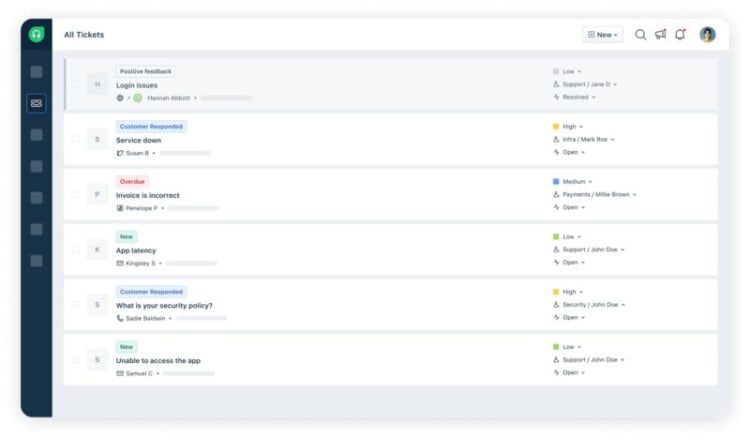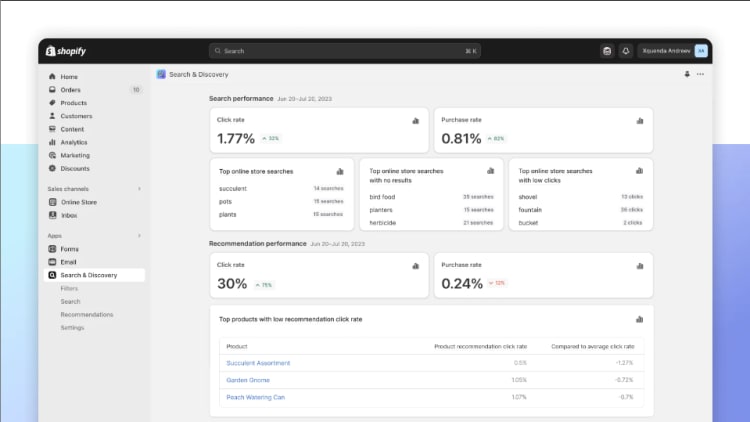In today’s fast-paced business world, small businesses face numerous challenges. How can they stay competitive while managing limited resources? The answer lies in leveraging the right tools. By adopting top small business tools for 2024, businesses can not only stay ahead of the curve but also maximize their growth potential. So, are you ready to discover the best tools to boost productivity and take your business to new heights?
This comprehensive guide will walk you through the power of small business tools, essential categories, and the top small business tools for 2024. You’ll learn how to choose the right tools to meet your needs, compare features and pricing, and make informed decisions for your business’s success. Let’s dive in!
Key takeaways
- Small business tools can streamline processes, automate tasks and improve organization to increase efficiency and productivity.
- Investing in the right cost-effective business tools is essential for small businesses to save money and maximize potential.
- Assessing needs & goals, comparing features & pricing, as well as testing options are key steps when selecting the best small business tools for success.
The power of small business tools

Small business owners often wear multiple hats, juggling various responsibilities while striving to grow their ventures. Enter the world of business tools, designed to save time, cut costs, and scale operations. From project management to marketing and sales, the best small business tools can equip you with the capabilities to thrive in today’s competitive market. In this article, we will discuss some of our favorite small business tools.
Given the multitude of choices, picking the right tools for your business becomes imperative. These tools, which streamline processes, automate tasks, and improve organization, serve as a catalyst for your business’s progress towards long-term success.
Time-saving benefits
Imagine having more time to focus on your core business activities instead of getting bogged down in mundane administrative tasks. Time-saving benefits of small business tools, such as automation and streamlined business processes, can free up precious time and resources, allowing you to concentrate on strategic tasks.
Project management tools like Asana, for instance, help teams maintain a balanced workload, ensuring tasks are completed in a timely manner through effective task management. Similarly, RescueTime, a productivity tool, analyzes the time spent on tasks and highlights when you’re most productive. Adopting such tools can significantly boost your business’s efficiency and productivity.
Cost-effectiveness
Small businesses often operate on tight budgets, making cost-effectiveness a top priority. Investing in the right business tools can help reduce the need for additional staff or outsourcing, ultimately saving money. From accounting software to analytics tools, these solutions can help small businesses operate more cost-effectively.
For example, Stripe, a payment processing platform, charges a minimal fee per transaction, eliminating the need for a separate payment gateway. Similarly, WordPress, a popular website builder, offers affordable plans for businesses of all sizes. By choosing cost-effective tools, you can maximize your business’s potential without breaking the bank.
Scalability
A growing business requires tools that can adapt and grow with it. Scalability is a key advantage of small business tools, allowing businesses to adjust and expand as needed for long-term success. A scalable solution not only meets your current needs but also supports future growth, preventing the need for constant tool-switching.
Accounting software like QuickBooks and Xero, for instance, offer plans tailored to businesses of various sizes, ensuring that you have the right features at every stage of your business’s growth. By choosing scalable tools, you can invest in your business’s future and ensure success in the long run.
Essential categories of small business tools

To navigate the vast landscape of business tools, it’s helpful to categorize them into essential groups. Four key categories include:
- Project management and collaboration
- Marketing and sales
- Financial management
- Communication and teamwork
Understanding these categories enables small business owners to identify the tools that best tackle their specific needs and challenges.
Each category has a distinct role in streamlining business operations and promoting growth. These tools, which facilitate:
- Task organization
- Campaign management
- Financial oversight
- Team collaboration
Empower your business to achieve its maximum potential.
Project management and collaboration
Project management and collaboration tools serve as a fundamental component in any business, assisting teams in planning, organizing, and monitoring their work. These tools foster teamwork and efficiency, ensuring that everyone stays on the same page and projects are completed on time.
Take Kumospace, for example, which offers virtual event hosting, video chat, and screen sharing for seamless collaboration. Similarly, Asana provides checklists, charts, and progress reports to keep everyone on track. Utilizing such tools, businesses can strengthen collaboration and subsequently achieve superior results.
Marketing and sales
In today’s digital age, marketing and sales tools are indispensable for reaching new customers, generating leads, and closing sales effectively. Some essential tools include social media marketing, along with:
- Social media management platforms
- Email marketing software
- Customer relationship management (CRM) systems
- Content management systems (CMS)
- Analytics and reporting tools
These tools, including Google Analytics, can help businesses target the right audience and boost their bottom line.
HubSpot, a popular CRM software, offers features like lead generation and nurturing, while Mailchimp, an email marketing platform, helps businesses design and send targeted email campaigns. Opting for the correct marketing and sales tools enables businesses to accelerate their growth and maintain a continuous influx of new customers.
Financial management
Managing finances is often a daunting task for small businesses. However, financial management tools can simplify various financial tasks, including invoicing, billing, and bookkeeping. Automation and streamlining of these processes provide businesses with improved financial control and decision-making capabilities.
QuickBooks and Xero, for example, offer comprehensive financial management solutions, making it easy for businesses to stay on top of their financial health. Utilizing such tools allows small businesses to enhance their financial management and encourage sustained growth.
Communication and teamwork
Effective communication and teamwork are essential for any business to succeed. Tools like Kumospace, Slack and Zoom provide a platform for teams to stay connected and work together on projects, regardless of their physical location.
Slack offers channels and direct messages for real-time communication, while Zoom enables video conferencing for remote meetings and presentations. Kumospace, on the other hand, integrates features of both, offering real-time chat and video conferencing capabilities. The implementation of these tools guarantees smooth collaboration and cultivates a robust team culture.
Top Small Business Tools for 2024

As we look ahead to 2024, small businesses must continue to adapt and evolve in an ever-changing landscape. To stay competitive, businesses should leverage the top small business tools of the year:
- Kumospace for virtual meetings and team-building
- Google Workspace for productivity and collaboration
- Freshdesk for customer support
- Shopify for e-commerce management
These free small business tools not only address specific challenges faced by small businesses but also offer scalability and flexibility to support growth and success in the coming years.
Kumospace

Kumospace is a versatile suite of small business tools designed to enhance collaboration and engagement. With features like virtual event hosting, video chat, and screen sharing, Kumospace enables businesses to stay connected and foster a strong team culture, even in today’s remote work environment.
Kumospace offers a range of features including:
- Spatial audio
- Chat
- Security features
- Visual tools like whiteboarding and annotations
Its comprehensive offerings make it a top choice for modern businesses looking to improve team collaboration and drive growth.
Google Workspace

Google Workspace is a comprehensive suite of productivity and collaboration tools that can help businesses streamline their daily operations. It offers solutions like:
- Gmail
- Calendar
- Drive
- Docs
- Sheets
- Slides
With Google Workspace, teams can collaborate on documents, manage their schedules, and store files in the cloud.
By adopting Google Workspace, businesses can improve communication, save time, and cut down expenses – all essential factors for long-term success in today’s competitive market.
Freshdesk

Freshdesk is a customer support software that helps businesses manage customer inquiries, track issues, and improve overall customer satisfaction. With features like ticket dispatch, intelligent ticket assignment, and automation, Freshdesk streamlines customer support processes, saving time and resources.
Moreover, Freshdesk offers multilingual support, multiple time zones, and team collaboration features, making it an ideal solution for businesses looking to enhance their customer support capabilities and drive customer satisfaction.
Shopify

Shopify is a powerful e-commerce platform that allows businesses to create and manage online stores, process orders, and handle shipping and returns. With a user-friendly interface and customizable templates, Shopify makes it easy for businesses to set up and manage their online presence.
In addition to its core e-commerce features, Shopify offers inventory management, payment processing, and shipping and returns capabilities, making it a comprehensive solution for businesses looking to expand their online presence and drive sales.
Choosing the right small business tools

Choosing the appropriate small business tools is vital in tackling specific challenges and attaining your business objectives. Ensuring the tools you select are the best fit for your business involves assessing your needs and goals, comparing features and pricing, and testing before fully committing.
Adhering to this process allows you to make informed decisions and invest in tools that will stimulate growth and ensure your business’s long-term success.
Assessing needs and goals
The first step in choosing the right tools is assessing your needs and goals. Here are the steps to follow:
- Identify your business’s specific challenges and objectives.
- Understand the current state of your business.
- Determine your business’s aims.
- Assess the resources available to achieve those aims.
This process will help you ascertain the most beneficial free business tools for your business.
Once you have a clear understanding of your needs and goals, you can begin researching and evaluating tools that address those challenges and support your objectives.
Comparing features and pricing
Comparing features and pricing is a crucial step in selecting the right small business tools. It’s essential to find the right balance between functionality and affordability to ensure you get the most value from your chosen tools.
By analyzing market trends and identifying potential opportunities, you can gain valuable insights and make well-informed decisions about which tools offer the best combination of features and pricing to meet your specific needs. Remember, the most expensive option isn’t always the best one – it’s about finding the tools that provide the greatest value for your business.
Trying before committing
Trying before committing is an essential step in choosing the right small business tools. Testing various tools and gathering team feedback ensure that your chosen tools align with your needs and expectations.
Consider utilizing free trials, obtaining feedback from colleagues, or examining customer reviews to gain insights into the tool’s performance. By taking the time to evaluate and test different tools, you can make a more informed decision and invest in tools that will truly benefit your business.
Summary
In conclusion, small business tools are essential for businesses to thrive in today’s competitive market. By leveraging the power of these tools, businesses can save time, reduce costs, and scale their operations. With essential categories like project management and collaboration, marketing and sales, financial management, and communication and teamwork, businesses can address specific challenges and drive growth.
By assessing needs and goals, comparing features and pricing, and trying before committing, businesses can make informed decisions and invest in tools that will support their long-term success. So, gear up and embrace the top small business tools for 2024 to propel your business to new heights!
Frequently asked questions
To start a small business, you will need web design tools, marketing software, email marketing software, social media management tools, collaboration tools, project management tools, customer relationship management tools, accounting software, and more.
Customer Relationship Management (CRM) is the most important tool for a small business owner, as it provides the ability to keep track of customers, measure performance and create a seamless customer journey.
Small businesses need to prioritize understanding their target market and customers, developing a marketing plan, managing finances, and utilizing tools like Lean Planning to ensure cash flow. These are essential to success.
I use Project Management Tools, E-Signature Tools, Email Marketing, CRM, HR Management, Accounting Software, Communication and Collaboration tools, Password Management Tools and Workforce Management tools for my business.
Small business tools offer time-saving, cost-effectiveness and scalability benefits, enabling businesses to grow and stay competitive.





